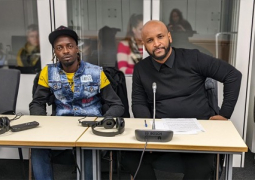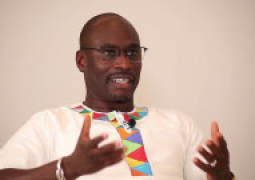
Throughout the session, lead counsel Patrick Gomez presented a series of vouchers and memos bearing the mayor’s handwritten notes directing the Chief Executive Officer (CEO) or Deputy CEO to process payments.
While Bensouda admitted writing on the documents, he repeatedly denied exercising authority over financial disbursements.
One of the key documents presented was a payment voucher from Charles Jow Memorial Academy requesting its annual subvention. On the voucher, Mayor Bensouda had written to the Deputy CEO: “DCEO pay this on a monthly basis.”
Counsel Gomez suggested this amounted to an instruction, but Bensouda disagreed. “It is a suggestion, not an instruction,” he argued, stressing that Charles Jow is a KMC-owned school that reports directly to the mayor. He maintained that only the CEO, as the authorizing officer, could approve payments.
“It does not matter what I say on the voucher. I cannot authorize the CEO to make payments,” Bensouda told the commission.
The Commission also reviewed several other vouchers where Bensouda appeared to endorse payments, including D75,000 for a community lighting project in Bakoteh, D15,000 for training programs in Ebo Town/New Jeshwang, and D10,000 for football teams in Abuko.
On each, the mayor insisted he was merely supporting the activity, not approving the money. “I never approve amounts. I approve activities,” he told the commission.
Counsel Gomez, however, countered that evidence from multiple CEOs showed payments above D1,000 were routinely processed only after clearance from the mayor.
The inquiry also examined a memo recommending D150,000 as an honorarium for an HR expert, where the mayor wrote: “CEO 100 approved for Mr. Modou Gaye.” Bensouda disputed that this constituted approval, but Counsel Gomez disagreed, pointing out that his own writing confirmed the payment.
Another controversial request involved D100,000 for tickets to musician Nyangcho’s show. Again, Bensouda said he endorsed the activity, not the sum, but the counsel pressed that his note authorised the expenditure.
The mayor also faced questions about D260,000 in honorariums disbursed to the mayor’s office during a market revenue collection exercise, including D10,000 earmarked for himself. Asked why the funds were paid despite not being budgeted, Bensouda deflected: “The CEO is the best person to answer.”
Beyond the vouchers, the Commission examined council practices around resolutions and financial thresholds. Bensouda admitted that many decisions were reached through consensus rather than formal votes, estimating that “90% of council meetings” lacked recorded voting.
Counsel Gomez pressed him on whether such agreements could be considered resolutions under the Local Government Act. The exchanges grew heated, prompting Chairperson Jainaba Bah to intervene and remind the mayor that the Commission’s role was fact-finding, not incrimination.
Tensions flared further when Bensouda objected to being addressed as “Mr. Bensouda” rather than “Mayor Bensouda”. Counsel Gomez responded firmly: “No man is above the law and every witness is equal before this commission.”
Despite repeated denials, Counsel Gomez maintained that evidence showed the mayor played a central role in clearing payments. “The words approve, endorse, and pay are used interchangeably in these documents,” he told the Commission.
The inquiry will continue as the LGCI seeks to determine whether KMC financial practices under Bensouda complied with the law, particularly concerning procurement, budget alignment, and the authority of the CEO versus the mayor.



